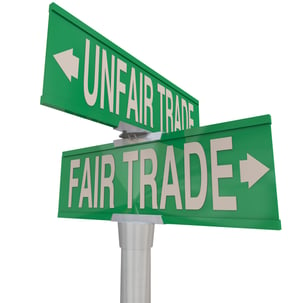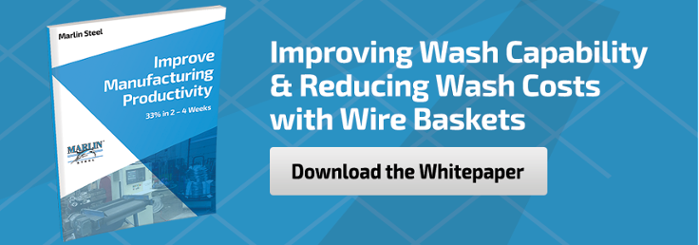 Fair trade is a great way for countries to exchange goods and build wealth. When trade practices are handled fairly, it gives companies on both sides a strong shot at increasing their market share and adding jobs.
Fair trade is a great way for countries to exchange goods and build wealth. When trade practices are handled fairly, it gives companies on both sides a strong shot at increasing their market share and adding jobs.
However, when trade practices are not fair, the relationship becomes skewed. Instead of gaining opportunities, companies that try to compete honestly when the other side isn’t doing so get destroyed.
Why? Because, when one group of manufacturing companies is able to ignore the rules and get away with it, they gain an insurmountable advantage that the other group can’t match. In particular, illegally-traded import products have become a problem for American manufacturers.
How do illegal imports affect the U.S. manufacturing industry? Here are a few of the issues caused by illegal trade practices such as steel dumping or IP (intellectual property) theft:
1: Loss of Market Share
Companies work hard to make their way into the markets they serve, investing countless hours of labor and enormous sums of capital into building a reputation and product line that attract customers. Unfair trade practices undermine these investments, stealing hard-earned business from companies that are following the rules.
For example, many years ago, Marlin Steel was known at the king of the bagel baskets, serving a then-booming bagel industry with commodity steel wire bagel racks. However, when foreign steel companies that were partly or wholly subsidized by the Chinese government entered the picture, Marlin lost most of its market share almost overnight.
Why? Because these competitors were subsidized by the Chinese government, they could sell their product at a loss and keep operating for as long as needed to drive the competition out of business. These Chinese companies were selling completed baskets for less than what it would cost Marlin to buy the steel.
Marlin was unable to compete with such a pricing model, surviving mostly because the company was able to shift focus into a new market that required timely delivery of precision-engineered products that focused on quality over quantity, which the foreign competitors were less-equipped to provide.
2: Loss of Jobs
 What happens when a company is forced out of most of its market share? The company has to adapt or die off. When unfair trade practices are perpetuated, the ones who suffer the most are the people who work for the honest company.
What happens when a company is forced out of most of its market share? The company has to adapt or die off. When unfair trade practices are perpetuated, the ones who suffer the most are the people who work for the honest company.
For example, consider the practice of steel dumping from China, and how it affects American companies. As stated by JMC Steel Group President David Seeger, China’s dumping of its 400 million tons of excess capacity for steel production is “essentially destroying the global steel market… Not only does it hurt domestic steel industries in the U.S. but also the manufacturers of downstream products that are made from steel such as pipe and tubing. The whole market becomes a distorted mess.”
In response to the oversaturation of cheap foreign steel to the American market, steel producing companies are being forced to find ways to reduce costs. One example cited by the Alliance for American Manufacturing is U.S. Steel, which, according to an AAM article, had to “temporarily idle operations at its facility in Granite City, Illinois due to steel imports, issuing layoff warnings to 2,080 workers.”
These steel producers have no way of hoping to match their foreign competitors on cost, and with cheap steel flooding the market, they have to do what they can to weather the storm, and the workers end up getting reduced hours or even possibly lose their jobs.
What Can Be Done to Prevent Illegally-Traded Imports from Affecting American Manufacturers?
Certain measures, such as the Level the Playing Field Act, will go a long way to addressing some of the underlying issues that allow foreign competitors to put products made using stolen IP or unfair government subsidies into the American marketplace.
However, so long as the enforcement of these policies lack bite, foreign competitors will continue to get away with whatever they can.
What the manufacturing industry needs is legislation that clearly defines and addresses the illicit practices that cause harm to American companies, and make it easier for U.S. manufacturers to show that they have been “injured” by such practices before they reach the point of bankruptcy and mass layoffs.
Many organizations such as the National Association of Manufacturers (NAM) and the National Alliance for Jobs and Innovation (NAJI) work tirelessly to bring these unfair trade issues to the attention of Congress and provide protection to American manufacturers so that they don’t get trampled by foreign government-subsidized competitors.
Check out Marlin’s other blogs for more information about the manufacturing industry and how unfair trade practices affect our nation’s manufacturing sector.



.gif)


